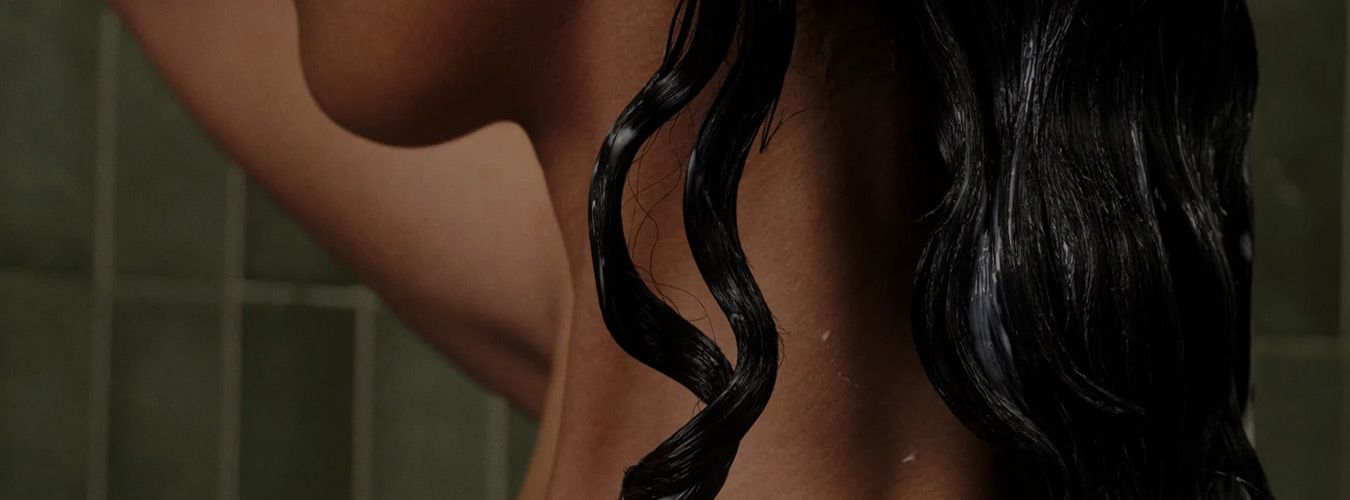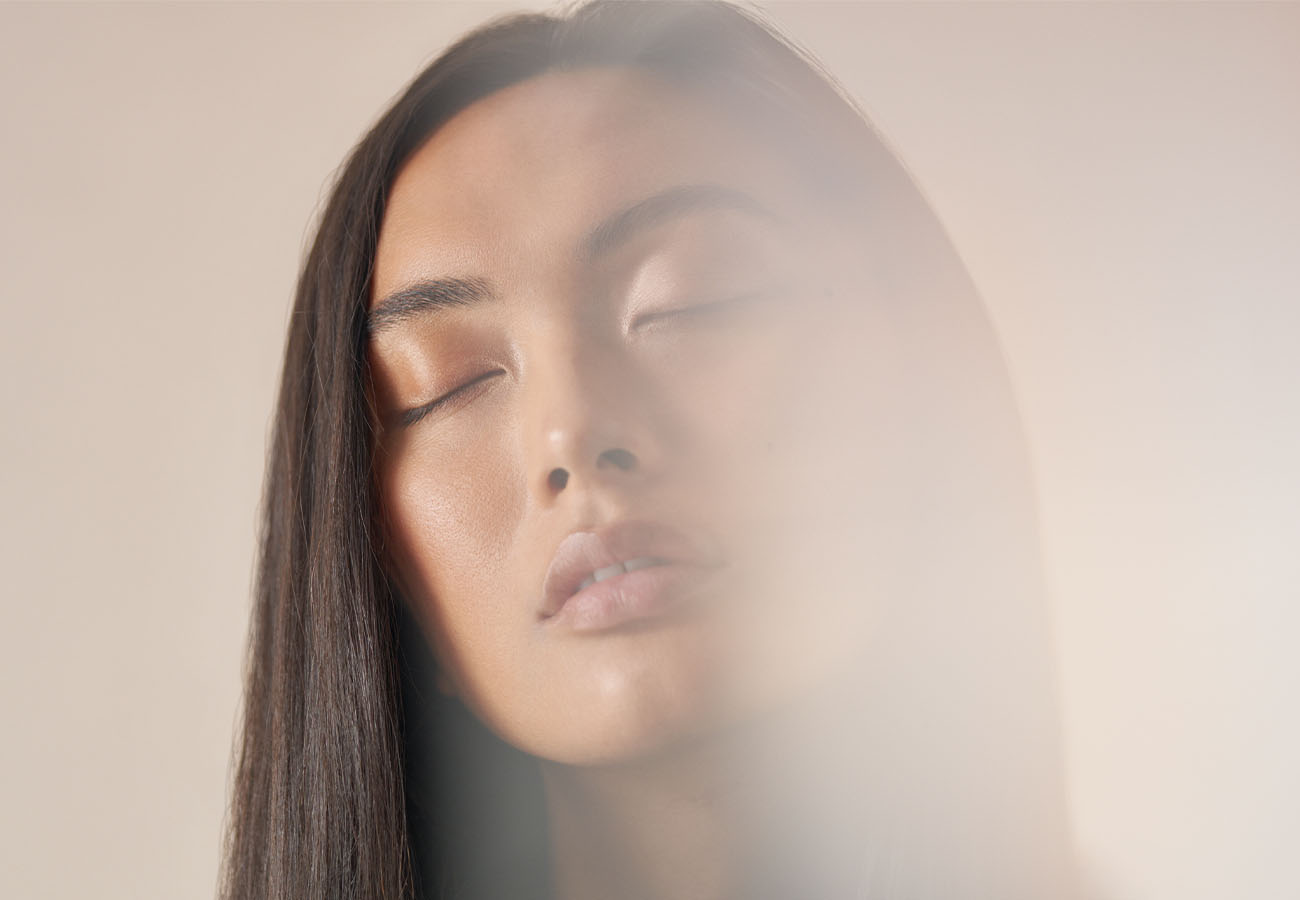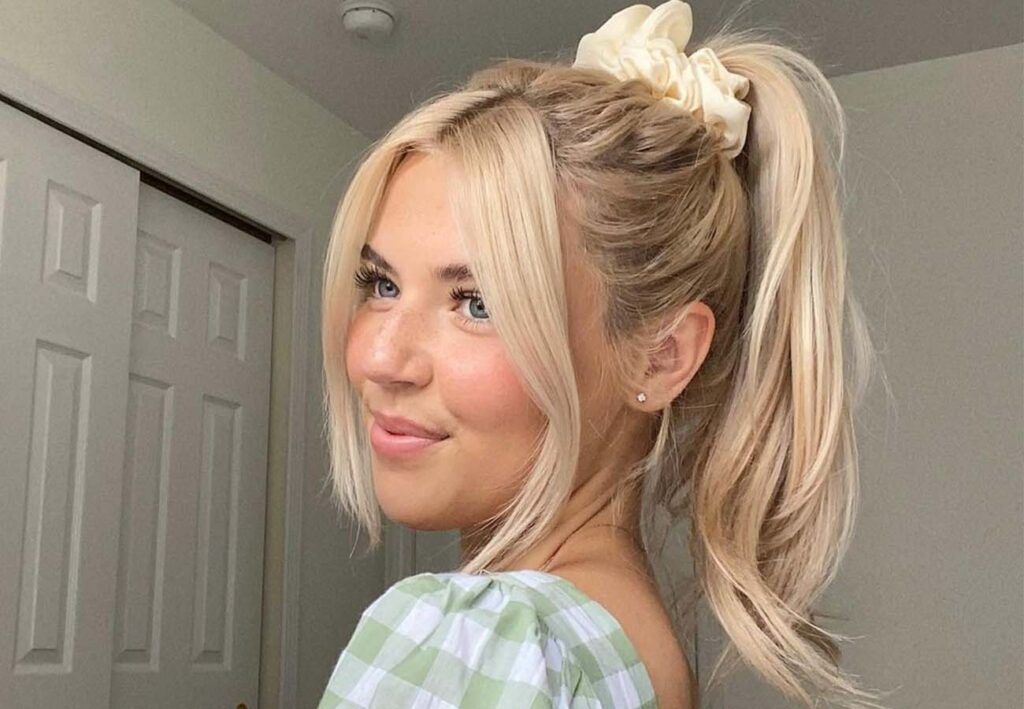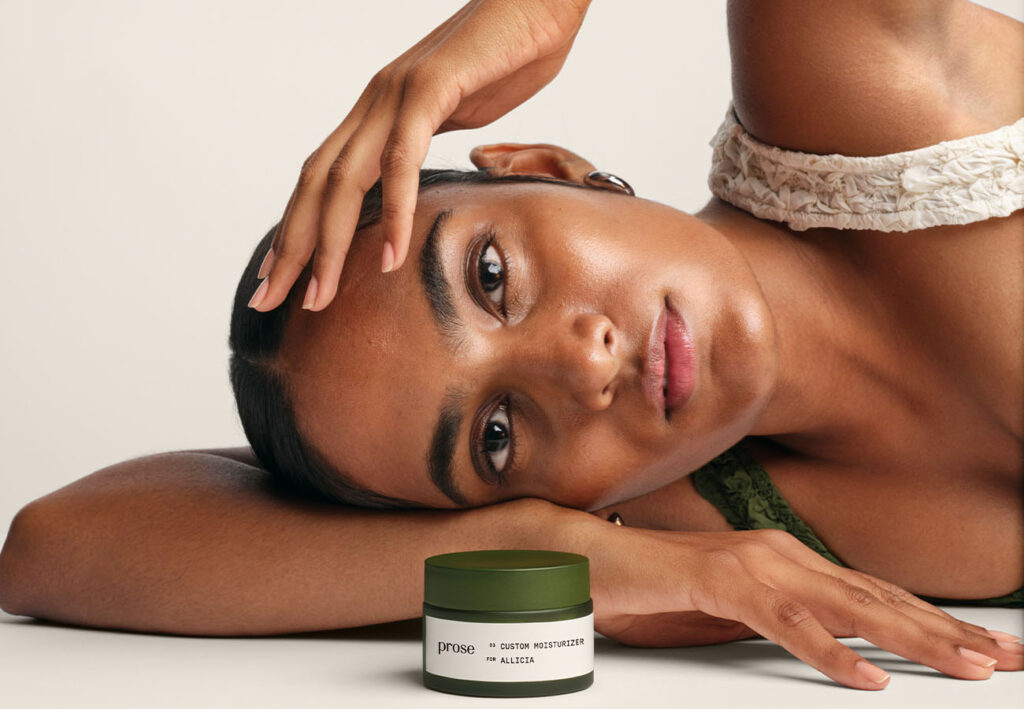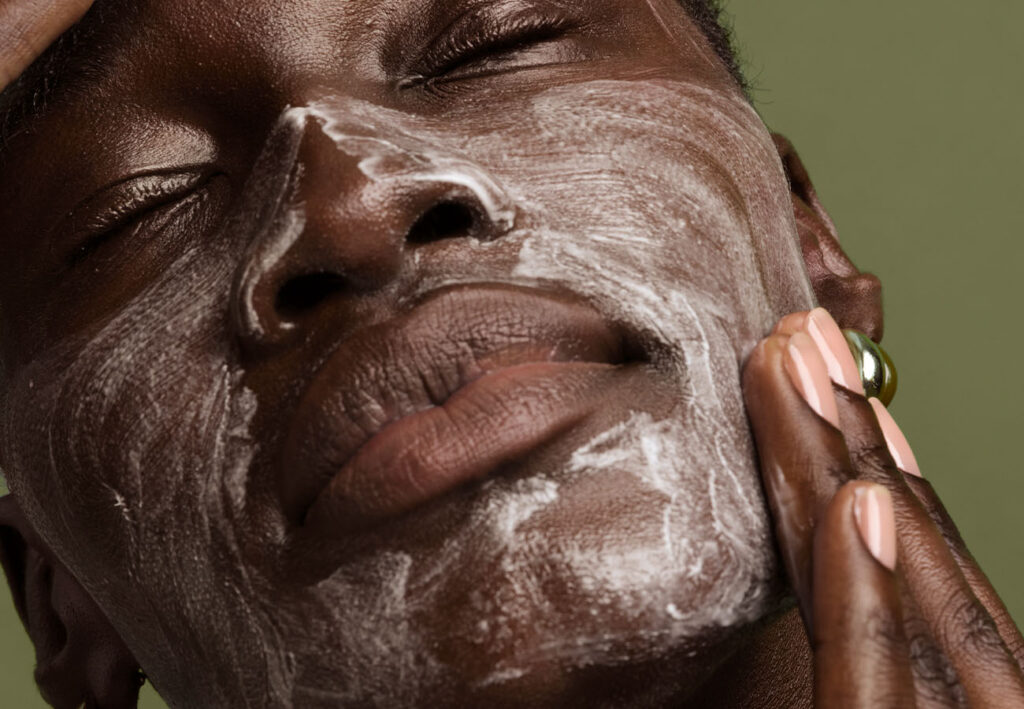1. Wash your hair less.
“In the winter, people should wash their hair less,” advises Ramirez, debunking a common myth that washing your hair more often may lead to a healthier, more moisturized mane. “Hair is dryer in the winter and over-washing will dry it out more which can cause breakage, especially if you’re not using the proper shampoo and products.”
2. Use hydrating treatments.
Look to add some winter hair treatments that are extra hydrating and moisturizing like hair oil, hair masks, high-quality conditioner, or leave-in conditioner. These are crucial to combat dryness and maintain healthy hair, providing essential moisture, nourishment, and protection to prevent dryness, breakage, and split ends caused by harsh weather conditions and indoor heating. We recommend using your favorite hair mask 1-2 times per week.
Remember, curly hair is particularly prone to dryness in the winter due to its natural texture, which makes it more susceptible to moisture loss. This makes using hydrating treatments and moisturizing products even more essential for curly hair during this season to retain moisture, enhance curl definition, and prevent frizz.
3. Be mindful of hydrating too much.
Yes, there is such a thing as over-hydrating the hair. While treating the hair and scalp to much-needed moisture is always encouraged in the winter, “too much of anything is not a good thing” per Rivera. Known as hygral fatigue, this over-hydration can occur when moisturizing products—like hair masks, hair creams, and thick hair conditioners for example—are used too often. Think of it this way: When hair is wet, it swells; when it dries, it shrinks. This constant back-and-forth can lead to hair breakage. Try using your favorite hair mask no more than 1-2 times per week.
4. Avoid heat styling and if you do, use the right styling tools.
Heat harms our hair, leading to decreased moisture and breakage. This tends to intensify during the winter season, which usually finds us layered and bundled up, and sitting in heated rooms for months on end. Add your trusty hot styling tools, and you’ve got a recipe for unhealthy winter hair. While taking a break from heat styling is best, Rivera has an easier solution for those who can’t live without curling or straightening their hair. “Infrared styling tools are great for the hair during the winter, and during all seasons,” recommends Rivera, adding, “This is because they lock the moisture in rather than pull it from the hair.”
When you do heat style your hair, make sure to always use a heat protectant to shield your strands as much as possible.
5. Clarify the hair.
As a must-follow hair commandment, clarifying the hair helps to keep a healthy mane. For the uninitiated, clarifying the hair refers to the removal of any product or environmental build-up from the day(s) before, by way of shampoos or DIY concoctions. Rivera personally opts for a homemade paste that consists of baking soda and water. “Create the paste, wet the hair, and massage from roots to ends, then follow with your regular [shampoo],” she advises. Failing to include this step in your winter haircare routine “can contribute to a drying effect and create more static.”
5. Take your vitamins.
Stock up on hair-healthy vitamins and minerals to support your winter haircare routine. Hair experts and some studies have spotlighted the positive wellness-from-within effects of incorporating biotin, vitamin D, and iron into your daily regimen.
6. Add a hair oil treatment.
Incorporating a hair oil for winter is essential for protecting hair from harsh weather conditions that can lead to dryness, breakage, and frizz. These treatments provide deep nourishment and hydration, helping to restore moisture to the hair strands and scalp, which tends to become depleted due to exposure to cold air and indoor heating. To use hair oil treatments effectively, warm the oil slightly and massage it into the scalp and hair, ensuring even distribution from roots to ends. Leave the oil on for at least 30 minutes or overnight for a more intense treatment, then shampoo and condition as usual to rinse it out. Regular use of hair oil treatments during winter can help maintain hair health, promote shine, and prevent damage caused by environmental stressors.
7. Take your vitamins.
Stock up on hair-healthy vitamins and minerals to support your winter haircare routine. Hair experts and some studies have spotlighted the positive wellness-from-within effects of incorporating biotin, vitamin D, and iron into your daily regimen.
8. Swap your pillowcase.
While hair loss during the winter could be related to an underlying health issue or improper product usage, hair breakage during the cold-weather season is fairly normal. Think about it: Not only are you more likely to sport hats or wear sweaters in the winter, but doing so can cause friction. Ramirez recommends investing in a silk or satin pillowcase to keep hair healthy, intact, and sans static while you sleep. “It helps preserve your hair and protect your scalp and skin too,” he says, citing, “Silks and satins don’t grab hair the way wool, cotton, and other materials do.”
9. Protect your hair from winter exposure.
To shield your hair from winter’s harsh elements, covering it with hats and scarves is essential. These accessories provide a protective barrier against cold winds, snow, and moisture loss, preventing hair from becoming dry and brittle. When wearing hats, opt for ones made from smooth materials like silk or satin to minimize friction and reduce the risk of breakage. Additionally, ensure the hat fits snugly but not too tight to avoid restricting blood flow to the scalp.
10. Schedule regular trims.
Trims help eliminate split ends, which are more prone to occur in winter due to the lack of moisture in the air. By removing these damaged ends, regular trims prevent split ends from traveling up the hair shaft, leading to healthier, stronger hair overall.
11. Never leave the house with wet hair.
Going out with wet hair in winter is a big no, as it can lead to breakage, frizz, and even scalp issues. Additionally, wet hair in freezing temperatures can make you feel even colder and may contribute to catching a cold. To protect the hair from these risks, gently dry your hair thoroughly before heading outside to maintain its health and vitality. We recommend using a microfibre towel, especially in the winter, as they cut drying time in half and reduce frizz by decreasing friction. This also helps minimize exposure to heat styling tools.
Always made to order. Never made to waste.
Exclusive Trial Offer Get 60% Off + Free Gift
